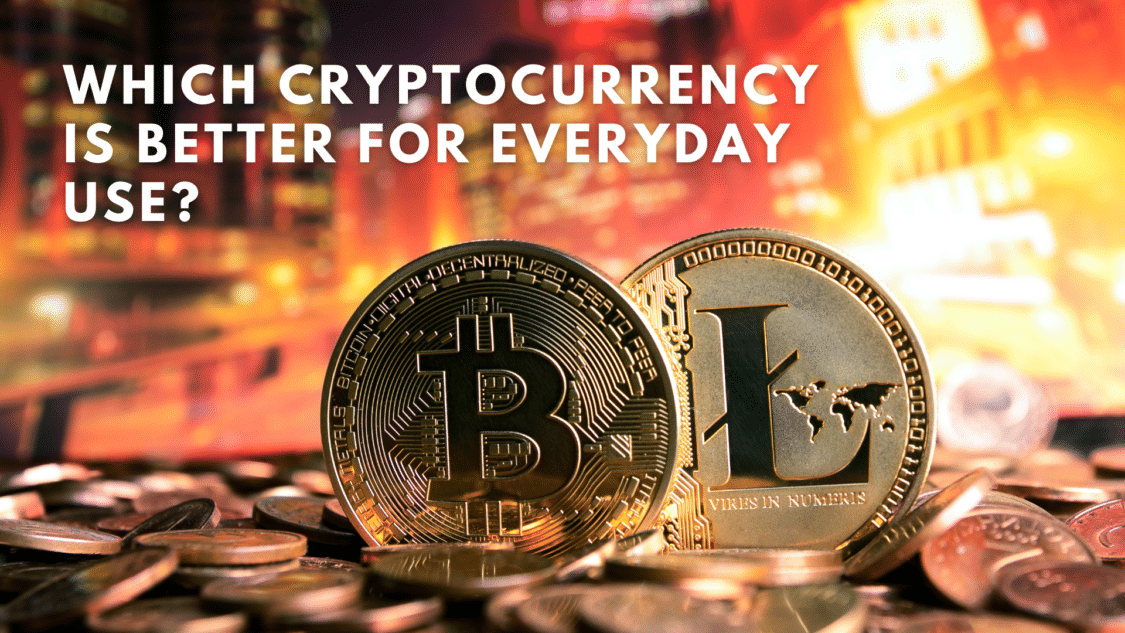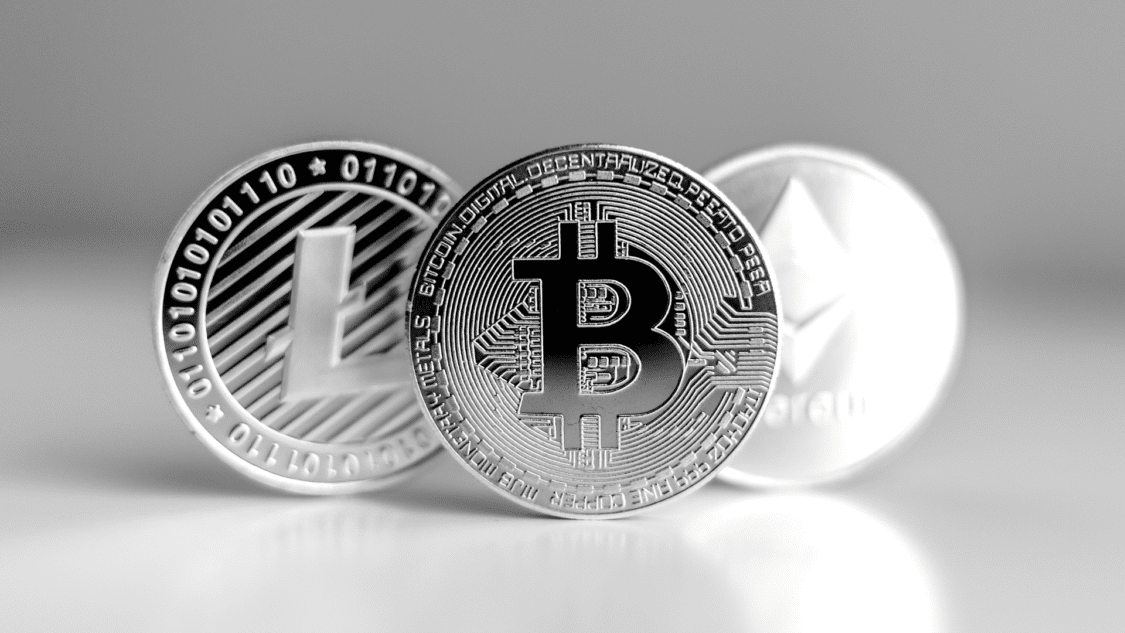Regarding the two cryptocurrencies, Bitcoin and Litecoin, people are often in a dilemma as to which one to use. In this article, we are going through the use cases of both these assets, ad we will break them down, explaining which is better for everyday use and why? While Bitcoin is the most popular and often considered the original cryptocurrency and has been around since 2009, Litecoin was introduced in 2011 as a “lite” version of Bitcoin.
Since they both come from the same code, they have similarities and differences. The creator Charlie Lee considers it silver to bitcoins gold. His goal when creating it was to improve the accessibility and speed of transactions, making it a more suitable option for everyday purposes.

Bitcoin Use Case:
Bitcoin was created to provide a decentralized, digital alternative to traditional currencies. It has attained popularity as a store of value, with investors buying and holding Bitcoin as a long-term investment. Bitcoin transactions are recorded and verified on a blockchain network. The blockchain protects transactions and helps keep them secure and transparent.
While Bitcoin was originally intended to serve as a digital currency, its high transaction fees and slow processing times have made it less useful for everyday transactions. Bitcoin’s limited transaction and high costs have resulted in many users using Bitcoin mainly as a long-term store of value and speculative investment.
Litecoin Use Case:
It was introduced to improve Bitcoin’s transaction speed and processing fees. It is a peer-to-peer cryptocurrency that stands similar to Bitcoin but with some key differences. Litecoin transactions are processed times four faster than Bitcoin transactions. In addition, the fees for transactions are much lower than Bitcoin fees. It is often used for small transactions and everyday purchases, such as coffee or groceries. Its faster processing times and lower fees make it a more practical option for daily purposes. However, like Bitcoin, Litecoin’s price is highly volatile and can fluctuate significantly in short periods.
Which Cryptocurrency Is Better for Everyday Use?
When it comes to everyday use, Litecoin may have an advantage over Bitcoin due to its faster processing times and lower fees. Litecoin has a shorter confirmation time than Bitcoin transactions, which can make it more convenient for everyday purchases. Additionally, the lower prices make it more practical for smaller transactions.
However, Bitcoin still has a strong use case as a store of value and a long-term investment. Its high market capitalization and widespread adoption make it a more stable investment option for traders than Litecoin. Bitcoin’s limited transaction throughput and high fees may make it less convenient for everyday use. However, it is still a valuable asset for long-term investment and diversification.
Can they be used for peer-to-peer lending and borrowing?
Yes, Bitcoin and Litecoin can be used for peer-to-peer lending and borrowing. Several decentralized finance (DeFi) platforms permit individuals to lend and borrow cryptocurrencies, including Bitcoin and Litecoin. These platforms operate on blockchain technology and allow peer-to-peer transactions without intermediaries like banks.
Proof of work algorithm

The mining algorithm is one of the more significant differences between the two assets. A proof of work (PoW) consensus technique is used by both cryptocurrencies to validate transactions and add new blocks to the network. However, the specific PoW algorithm used by each cryptocurrency has its differences.
Bitcoin uses the SHA-256 hashing algorithm, a computationally intensive algorithm that requires significant computing power to solve the mathematical problems necessary to add new blocks to the blockchain. This high computing power requirement is why Bitcoin mining needs specialized hardware, such as ASICs (Application-Specific Integrated Circuits), designed specifically for Bitcoin mining.
Litecoin, on the other hand, uses a hashing algorithm called Scrypt. Scrypt was designed to be more memory-intensive and less computationally intensive than SHA-256. This means it requires less computing power to mine Litecoin than Bitcoin. As a result, Litecoin mining can be accomplished using standard computers or even graphics cards (GPUs) rather than specialized hardware.
The Scrypt algorithm also provides benefits beyond making mining more available to a wider range of users. Because Scrypt is memory-intensive, it is more resistant to ASIC mining. This means it is less likely to be dominated by a small group of miners with specialized hardware. Helping to maintain a more decentralized network and prevent the centralization of mining power.
In summary, the difference in mining algorithms significantly impacts their respective mining processes. Bitcoin’s SHA-256 algorithm requires significant computing power and specialized hardware. In contrast, Litecoin’s Scrypt algorithm is more accessible to a broader range of users and more resistant to mining power’s centralization.
Coin limit – Block Rewards
Miners receive coins for verifying and processing transactions as part of the mining process. Both of these cryptocurrencies also have a limited supply. Bitcoin has a limit of 21 million coins, while Litecoin has a limit of 84 million. These limits prevent new coins from being produced, and the rewards are halved to limit the creation of new coins. The rewards for Bitcoin blocks are halved every 210,000 blocks, and Litecoin blocks every 840,000 blocks.

Are there any industries that are particularly well-suited for using Litecoin?
Yes, some industries may find it particularly useful. Due to its faster transaction confirmation time, Litecoin can be a more efficient payment option for businesses that require quick transactions. The gaming industry has adopted Litecoin as a payment method for in-game purchases. The faster transaction times allow for a smoother and more seamless gaming experience. Additionally, the retail industry could benefit from Litecoin’s shorter transaction times, as it could ensure quicker payment processing times at checkout. Overall, Litecoin’s faster transaction confirmation times make it a beneficial choice for industries that require immediate and efficient payment processing.
What are some of the advantages and disadvantages of using Bitcoin versus Litecoin for transactions or as an investment?
There are several advantages and disadvantages to examine when comparing Bitcoin and Litecoin as transactional or investment assets:
Advantages of Bitcoin:
- Bitcoin is the most widely accepted cryptocurrency, with a more extensive user base due to its popularity and more merchants accepting it as a means of payment.
- Bitcoin has high trading volumes on various exchanges; this makes it a more accessible asset to buy and sell quickly.
- Bitcoin has become a store of value asset, with many investors holding it as a hedge against inflation and uncertainty in traditional markets.
- Bitcoin has a more extensive network of miners and more hash power securing it, providing it with resistance to 51% of attacks.
Disadvantages of Bitcoin:
- Bitcoin transaction fees can stand high during periods of high network congestion. This makes it less practical for the use of small transactions.
- Bitcoin transactions can take several minutes or even hours to confirm, making it less suitable for transactions that require instant confirmation.
- Bitcoin’s scripting language is limited; it makes it less flexible than other cryptocurrencies for smart contract applications.
Advantages of Litecoin:
- Litecoin transactions are confirmed faster than Bitcoin transactions due to the Scrypt hashing algorithm.
- Litecoin transaction fees are usually lower than Bitcoin fees, making it more practical for small transactions.
- Litecoin’s scripting language is more flexible than Bitcoin’s, making it better suited for smart contract applications.
- Litecoin was part of the first cryptocurrencies to implement Segregated Witness (SegWit). This allowed for more transactions per block and helped to reduce transaction fees.
Disadvantages of Litecoin:
- Litecoin is less commonly accepted than Bitcoin and has a smaller user base.
- Litecoin has lower trading volumes on many exchanges, making buying and selling quickly complex.
- Litecoin is seen as more of a transactional cryptocurrency than a store of value. This can, over time, impact its long-term value.
In summary, both have advantages and disadvantages regarding transactions, investments and use cases. Bitcoin is widely accepted and established as a store of value but includes higher fees and slower transaction times. Litecoin is faster and has lower prices but is less accepted and has less liquidity. Ultimately, the choice between them will depend on individual needs and preferences.
Which of the two assets is more popular in Australia?
They are both popular assets in Australia, but Bitcoin is generally considered more widely used. Bitcoin has been available for trade-in Australia since 2013. Bitcoin is supported by many cryptocurrency exchanges, making it easily accessible to investors and traders. Litecoin, on the other hand, is less widely supported by Australian exchanges making it less well-known among investors and traders. However, Litecoin is still a popular cryptocurrency in its own right and has a dedicated mass of supporters and users.
While Bitcoin and Litecoin have a presence in Australia, Bitcoin is generally considered more popular and widely used among investors and traders.
Closing Thoughts
In summary, they have unique use cases and advantages. Bitcoin is the most well-known and widely adopted cryptocurrency, and its value as a store of value and long-term investment is widely recognized. Litecoin, on the other hand, offers faster processing times and lower fees, which makes it a more practical alternative for everyday use. Ultimately, the choice between the two will depend on your investment goals and use case.




